IDEAs invite applications for the course on "Money and Banking" coordinated by Dr. Ndongo Samba…
IDEAs Certificate Programme: Resource Persons and Teachers
Ahilan Kadirgamar
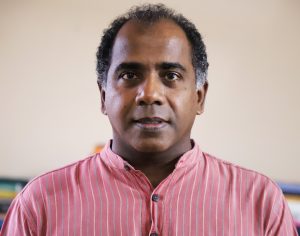 Ahilan Kadirgamar is Senior Lecturer, Department of Sociology, University of Jaffna, Sri Lanka. He holds a PhD in Anthropology from the Graduate Center, City University of New York, a MA in Economics from the New School for Social Research and a BS in Electrical Engineering from the Georgia Institute of Technology. He is a fortnightly columnist in the Daily Mirror, an Editorial Board Member of the Sri Lanka Journal of Social Sciences and a Board Member of Himal Southasian Magazine. His research interests include agrarian change, co-operatives and women’s livelihoods, and regularly writes on the political economy of Sri Lanka in forums such as The Hindu in India. He is currently the Honorary Chair of the Northern Co-operative Development Bank and a member of the Jaffna Peoples Forum for Co-existence. He served on the Central Bank of Sri Lanka appointed committee to draft the Economic Development Framework for a Northern Province Master Plan (August 2018).
Ahilan Kadirgamar is Senior Lecturer, Department of Sociology, University of Jaffna, Sri Lanka. He holds a PhD in Anthropology from the Graduate Center, City University of New York, a MA in Economics from the New School for Social Research and a BS in Electrical Engineering from the Georgia Institute of Technology. He is a fortnightly columnist in the Daily Mirror, an Editorial Board Member of the Sri Lanka Journal of Social Sciences and a Board Member of Himal Southasian Magazine. His research interests include agrarian change, co-operatives and women’s livelihoods, and regularly writes on the political economy of Sri Lanka in forums such as The Hindu in India. He is currently the Honorary Chair of the Northern Co-operative Development Bank and a member of the Jaffna Peoples Forum for Co-existence. He served on the Central Bank of Sri Lanka appointed committee to draft the Economic Development Framework for a Northern Province Master Plan (August 2018).
Avinash Kumar
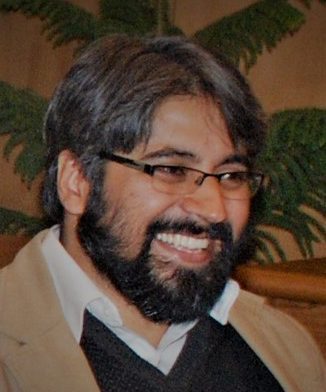 Avinash Kumar is an Assistant Professor at the Centre for Informal Sector and Labour Studies, Jawaharlal Nehru University. His major research and teaching include politics of informality, political economy of labour and development, migration, state politics, and social movements. He has done extensive fieldwork in India to examine the labour regimes and patterns of labour control in the construction sector. His latest publication, The COVID-19 pandemic and the state in Bihar, a working paper for UNUWIDER presents a critical analysis of official data related to COVID-19 in Bihar state, India, which points to the manipulation of data for political ends. He has also co-edited a book, Labouring Women: Issues and Challenges in Contemporary India, published by Orient Blackswan in 2021.
Avinash Kumar is an Assistant Professor at the Centre for Informal Sector and Labour Studies, Jawaharlal Nehru University. His major research and teaching include politics of informality, political economy of labour and development, migration, state politics, and social movements. He has done extensive fieldwork in India to examine the labour regimes and patterns of labour control in the construction sector. His latest publication, The COVID-19 pandemic and the state in Bihar, a working paper for UNUWIDER presents a critical analysis of official data related to COVID-19 in Bihar state, India, which points to the manipulation of data for political ends. He has also co-edited a book, Labouring Women: Issues and Challenges in Contemporary India, published by Orient Blackswan in 2021.
Alicia Puyana
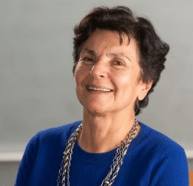 Alicia Puyana holds a DPhil degree in economics, Oxford University. She is full-time Professor of Economics at FLACSO-MEXICO, and is member of IDEAs, Oxford Development and other academic boards. She has been a visiting fellow at St Antony’s College, Oxford and London School of Economics. Puyana is author and editor of books and articles on economic growth, economic regional integration, oil economics and extractivism, growth and inequality, ethnic and gender discrimination in Latin America, and on the ethics in economics.
Alicia Puyana holds a DPhil degree in economics, Oxford University. She is full-time Professor of Economics at FLACSO-MEXICO, and is member of IDEAs, Oxford Development and other academic boards. She has been a visiting fellow at St Antony’s College, Oxford and London School of Economics. Puyana is author and editor of books and articles on economic growth, economic regional integration, oil economics and extractivism, growth and inequality, ethnic and gender discrimination in Latin America, and on the ethics in economics.
Barbara Harriss-White
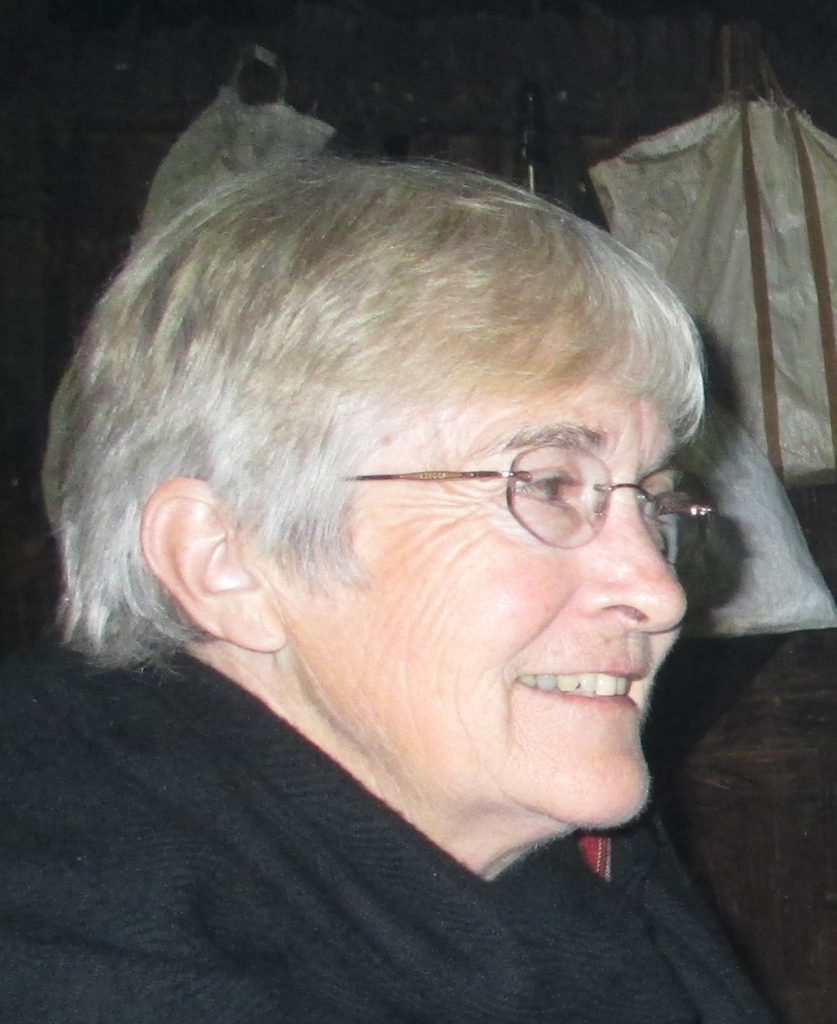 Barbara Harriss-White is a political economist who drove to India in 1969 and has been studying it (mostly through fieldwork iterated in three regions) and teaching about it ever since. Her main interests have been agrarian change, rural /agricultural markets, non-metropolitan urbanisation, Indian’s informal social structure of accumulation and capitalism and aspects of implemented policy connected with these topics. In the 1980s, teaching at the London School of Hygiene and Tropical Medicine, she added the roles of markets in aspects of deprivation: so nutrition, gender bias, ageing, disability, poverty, destitution, caste discrimination and citizenship. From 1987-2011 she worked in Queen Elizabeth House Oxford University, eventually directing it. She established the M Phil in Development Studies and later the world’s first Masters in Contemporary India in Area Studies. 40 doctoral students and 40 post docs. 39 books (co)authored/edited ; 287 journal papers/book chapters. Since 2011 in retirement, she works on the economy as a waste-producing system (GHGs and agriculture, small town waste, waste and climate change); neglected aspects of agricultural development; rural capitalist transformations. She’s an Emeritus Professor at Oxford, a visiting Professor at JNU and Distinguished Research Fellow at Max Weber Forum, New Delhi.
Barbara Harriss-White is a political economist who drove to India in 1969 and has been studying it (mostly through fieldwork iterated in three regions) and teaching about it ever since. Her main interests have been agrarian change, rural /agricultural markets, non-metropolitan urbanisation, Indian’s informal social structure of accumulation and capitalism and aspects of implemented policy connected with these topics. In the 1980s, teaching at the London School of Hygiene and Tropical Medicine, she added the roles of markets in aspects of deprivation: so nutrition, gender bias, ageing, disability, poverty, destitution, caste discrimination and citizenship. From 1987-2011 she worked in Queen Elizabeth House Oxford University, eventually directing it. She established the M Phil in Development Studies and later the world’s first Masters in Contemporary India in Area Studies. 40 doctoral students and 40 post docs. 39 books (co)authored/edited ; 287 journal papers/book chapters. Since 2011 in retirement, she works on the economy as a waste-producing system (GHGs and agriculture, small town waste, waste and climate change); neglected aspects of agricultural development; rural capitalist transformations. She’s an Emeritus Professor at Oxford, a visiting Professor at JNU and Distinguished Research Fellow at Max Weber Forum, New Delhi.
Chandan Mukherjee
 Chandan Mukherjee has been a teacher of Statistics for over four decades, teaching students and researchers of social sciences in various universities and institutes in India and Africa. He was the Director of the Centre for Development Studies, Thiruvananthapuram (1995-2003), RBI Chair Professor at the National Institute of Public Finance and Policy, Delhi (2009-2010), Professor and Dean (2011-2015), School of Development Studies, and Pro-Vice Chancellor of B R Ambedkar University, Delhi (2013-2015). The Institute of Social Studies, The Hague, The Netherlands invited him as a Visiting Professor with the Population and Development Programme from 1991-94. In 1997, he was appointed as the Vice-Chairman, Advisory Council for Scientific Research on Development Problems, Ministry of Development Co-operation, Government of The Netherlands for over two terms. Among his publications, “Econometrics and Data Analysis for Developing Countries” (1998), written with Howard White and Marc Wuyts, remains a popular text book, widely used by students and teachers in many countries. He has a Master’s degree and a Ph.D in Statistics from the Indian Statistical Institute, Kolkata (Calcutta).
Chandan Mukherjee has been a teacher of Statistics for over four decades, teaching students and researchers of social sciences in various universities and institutes in India and Africa. He was the Director of the Centre for Development Studies, Thiruvananthapuram (1995-2003), RBI Chair Professor at the National Institute of Public Finance and Policy, Delhi (2009-2010), Professor and Dean (2011-2015), School of Development Studies, and Pro-Vice Chancellor of B R Ambedkar University, Delhi (2013-2015). The Institute of Social Studies, The Hague, The Netherlands invited him as a Visiting Professor with the Population and Development Programme from 1991-94. In 1997, he was appointed as the Vice-Chairman, Advisory Council for Scientific Research on Development Problems, Ministry of Development Co-operation, Government of The Netherlands for over two terms. Among his publications, “Econometrics and Data Analysis for Developing Countries” (1998), written with Howard White and Marc Wuyts, remains a popular text book, widely used by students and teachers in many countries. He has a Master’s degree and a Ph.D in Statistics from the Indian Statistical Institute, Kolkata (Calcutta).
C P Chandrasekhar
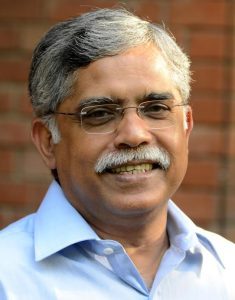 C.P. Chandrasekhar is an economist based in New Delhi and former Professor of Economics at Jawaharlal Nehru University. His areas of interest include the macroeconomics of development and the role of finance and industry in developing countries. He is a regular columnist for Frontline, Business Line, and the Economic and Political Weekly. Among his recent publications are two books titled Demonetisation Decoded: A Critique of India’s Currency Experiment (co-authored and published by Routledge) and Karl Marx’s Capital and the Present: Four Essays (Tulika Books).
C.P. Chandrasekhar is an economist based in New Delhi and former Professor of Economics at Jawaharlal Nehru University. His areas of interest include the macroeconomics of development and the role of finance and industry in developing countries. He is a regular columnist for Frontline, Business Line, and the Economic and Political Weekly. Among his recent publications are two books titled Demonetisation Decoded: A Critique of India’s Currency Experiment (co-authored and published by Routledge) and Karl Marx’s Capital and the Present: Four Essays (Tulika Books).
Charles A Abugre
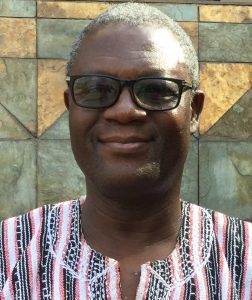
Charles A. Abugre is the current Executive Director of IDEAs. A Development Economist trained at the University of Ghana Legon and the Institute of Social Studies, The Netherlands, his research areas are in public finance, poverty and inequalities and natural resource governance. He has co-authored publications n international taxation and tax justice, African debt and development finance and is a regular contributor to the African Governance Report and the African Economic Report published by the UN Economic Commission for Africa (UNECA). He was previously a senior public servant with the Government of Ghana, a regional director for the UN Millennium Campaign (UNDP), head or research and policy at Christian Aid UK and lecturer at Swansea University, UK. He serves as a non-Executive Director of the Tax Justice Network among others.
Chirashree Das Gupta
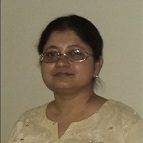 Chirashree Das Gupta is Associate Professor at the Centre for the Study of Law and Governance at Jawaharlal Nehru University New Delhi. Her research and teaching has been focused on different dimensions of the political economy of institutions with a focus on patriarchy, race, caste and class and the role of law in the political economy of accumulation in trade, finance and industrialization and public policy. She has worked on the relationship between personal laws, tax and corporate governance in India. Her recent work focuses on gender, labour and social reproduction.Her major journal publications have been in the Cambridge Journal of Economics, Rivista di Politica Economica, South Asia Multidisciplinary Academic Journal, and Economic and Political Weekly. Her book titled State and Capital in Independent India: Institutions and Accumulation has been published by Cambridge University Press in October 2016.
Chirashree Das Gupta is Associate Professor at the Centre for the Study of Law and Governance at Jawaharlal Nehru University New Delhi. Her research and teaching has been focused on different dimensions of the political economy of institutions with a focus on patriarchy, race, caste and class and the role of law in the political economy of accumulation in trade, finance and industrialization and public policy. She has worked on the relationship between personal laws, tax and corporate governance in India. Her recent work focuses on gender, labour and social reproduction.Her major journal publications have been in the Cambridge Journal of Economics, Rivista di Politica Economica, South Asia Multidisciplinary Academic Journal, and Economic and Political Weekly. Her book titled State and Capital in Independent India: Institutions and Accumulation has been published by Cambridge University Press in October 2016.
Dipa Sinha
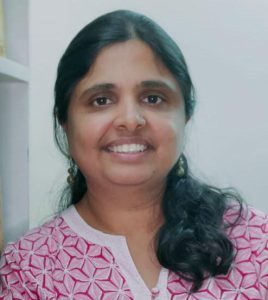 Dipa Sinha is currently Assistant Professor (Economics) at Dr. B. R. Ambedkar University Delhi. Her research is focussed on areas related to policy, gender, food security and public health. Over the last 15 years, she has worked with various policy research and advocacy organisations and has held advisory positions in non-government organisations. She worked with the Office of Commissioners to the Supreme Court (on the Right to Food), India. Dipa is actively involved with the Right to Food Campaign, India. Dipa holds an MA in Economics from Jawaharlal Nehru University (JNU), an MSc in Development Studies from School of Oriental and African Studies (SOAS), London, and a PhD from JNU
Dipa Sinha is currently Assistant Professor (Economics) at Dr. B. R. Ambedkar University Delhi. Her research is focussed on areas related to policy, gender, food security and public health. Over the last 15 years, she has worked with various policy research and advocacy organisations and has held advisory positions in non-government organisations. She worked with the Office of Commissioners to the Supreme Court (on the Right to Food), India. Dipa is actively involved with the Right to Food Campaign, India. Dipa holds an MA in Economics from Jawaharlal Nehru University (JNU), an MSc in Development Studies from School of Oriental and African Studies (SOAS), London, and a PhD from JNU
Dzodzi Tsikata
 Dzodzi Tsikata is Professor of Development Sociology and immediate past Director of the Institute of African Studies (IAS) at the University of Ghana. Her research in the last 30 years has been in the areas of gender and development policies and practices; agrarian change and rural livelihoods; the labour relations of the informal economy and transformative social policy. Her recent publications are the co-edited (with Elisabeth Prügl and Fenneke Reysoo) Forum in the Journal of Peasant Studies on the theme “Commercializing Agriculture/Reorganizing Gender” (JPS 48,7, September 2021). She is also the Principal Investigator of a pan-African research, networking and advocacy project, the Gender Equitable and Transformative Social Policy for Post-COVID-19 Africa (GETSPA) which is examining the social policy trajectories of thirty-one African countries. She is the secretary of the executive committee of IDEAS and a member of the Agrarian South Network.
Dzodzi Tsikata is Professor of Development Sociology and immediate past Director of the Institute of African Studies (IAS) at the University of Ghana. Her research in the last 30 years has been in the areas of gender and development policies and practices; agrarian change and rural livelihoods; the labour relations of the informal economy and transformative social policy. Her recent publications are the co-edited (with Elisabeth Prügl and Fenneke Reysoo) Forum in the Journal of Peasant Studies on the theme “Commercializing Agriculture/Reorganizing Gender” (JPS 48,7, September 2021). She is also the Principal Investigator of a pan-African research, networking and advocacy project, the Gender Equitable and Transformative Social Policy for Post-COVID-19 Africa (GETSPA) which is examining the social policy trajectories of thirty-one African countries. She is the secretary of the executive committee of IDEAS and a member of the Agrarian South Network.
Hazel Gray
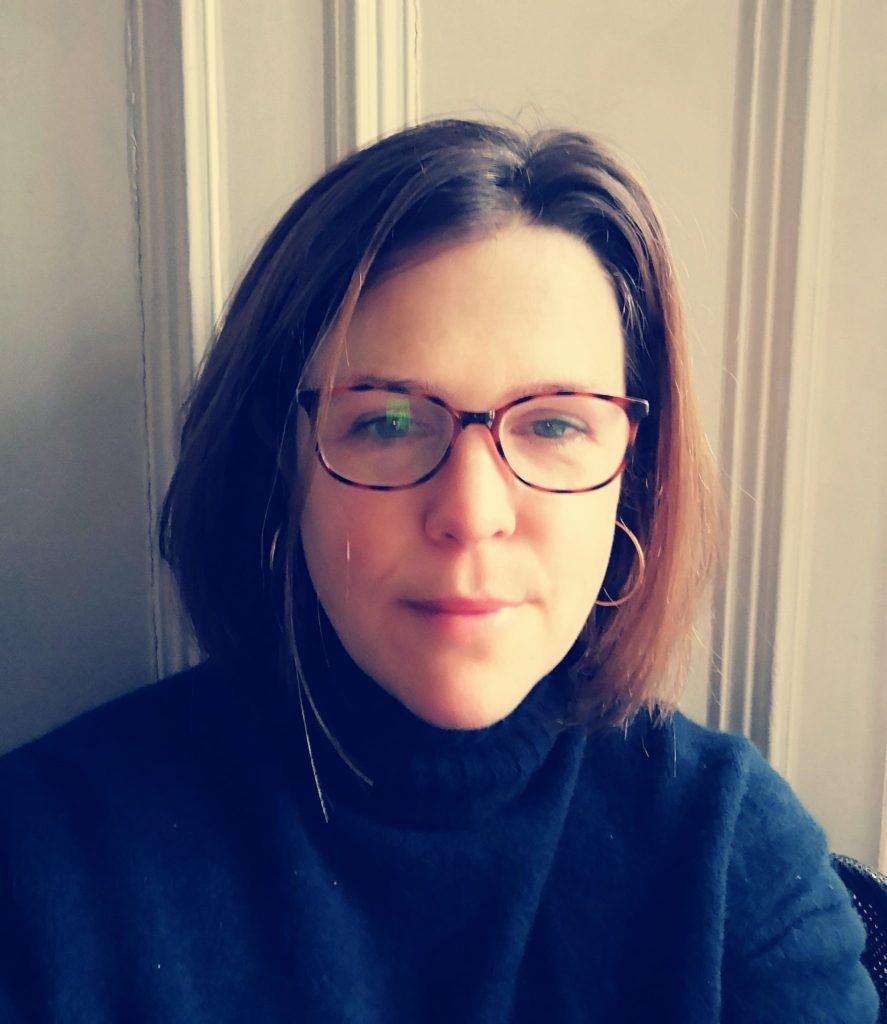 Hazel Gray is the current Director of the Centre of African Studies at the University of Edinburgh. She holds a PhD in Economics from SOAS, London. She is the co-chair of the journal Critical African Studies. Her research covers the political economy of economic change in Africa, industrial policy and industrialization, institutions, heterodox macroeconomics and comparative socialist experiences in Asia and Africa. She was a lead author for the UNDP Tanzania Human Development report in 2014 and 2017. She worked previously as an Economist at the Ministry of Finance in Tanzania. Her recent book titled Turbulence and Order in Economic Development: Institutions and Economic Transformation in Tanzania and Vietnam was published by Oxford University Press in 2018. .
Hazel Gray is the current Director of the Centre of African Studies at the University of Edinburgh. She holds a PhD in Economics from SOAS, London. She is the co-chair of the journal Critical African Studies. Her research covers the political economy of economic change in Africa, industrial policy and industrialization, institutions, heterodox macroeconomics and comparative socialist experiences in Asia and Africa. She was a lead author for the UNDP Tanzania Human Development report in 2014 and 2017. She worked previously as an Economist at the Ministry of Finance in Tanzania. Her recent book titled Turbulence and Order in Economic Development: Institutions and Economic Transformation in Tanzania and Vietnam was published by Oxford University Press in 2018. .
Himanshu
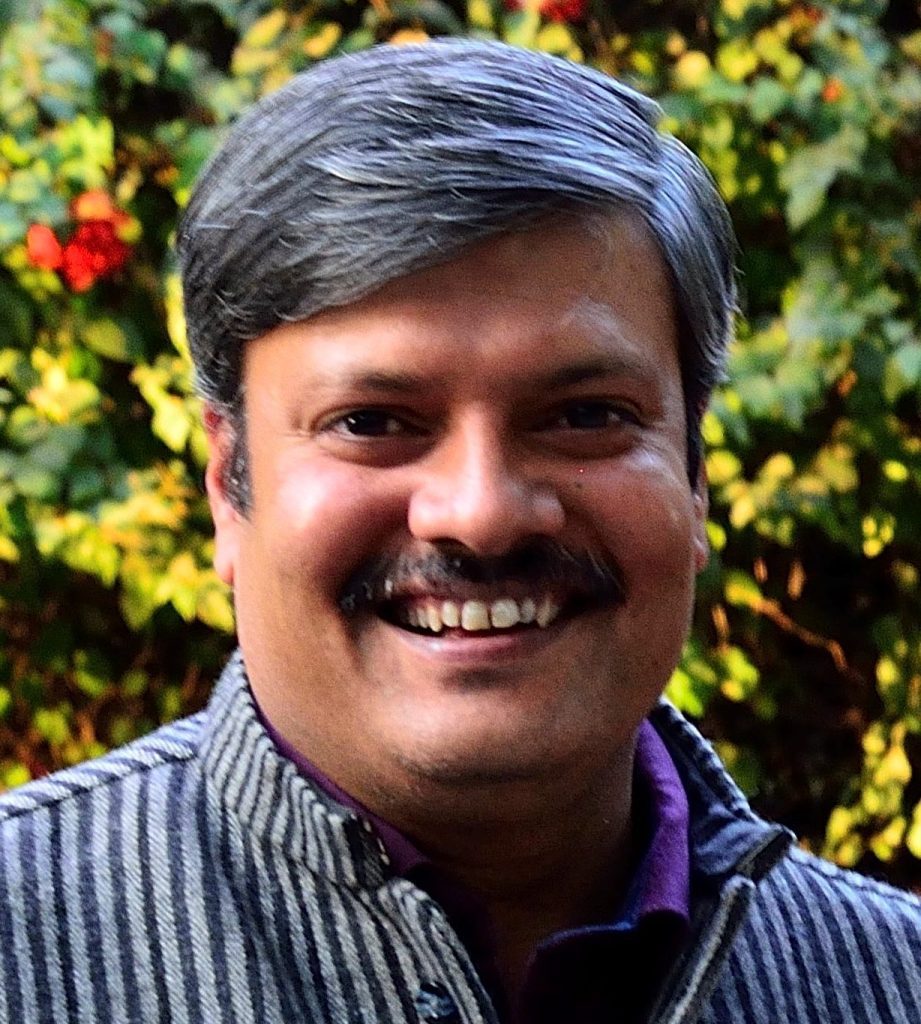 Himanshu teaches at the Centre for Economic Studies and Planning, Jawaharlal Nehru University. He is also visiting fellow at Centre de Sciences Humaines, New Delhi. He has held visiting fellowships at London School of Economics, UNU-WIDER and GREQAM. His primary area of research is development economics with focus on issues related to poverty, inequality, employment, food security, rural development and agrarian change. His current research interests revolve around poverty and inequality in India, structural change and changing pattern of employment and livelihood in rural India. He has been involved with various government committees including Expert Group on Measurement of Poverty (Tendulkar committee), National Statistical Commission, Reserve Bank of India, National Human Rights Commission, Ministry of Rural Development and Ministry of Housing and Urban Poverty Alleviation. His recent publications include “How Lives Change: Palanpur, India and Development Economics” with Nicholas Stern and Peter Lanjouw, published by Oxford University Press, London (2018). He was the principal investigator for the sixth and seventh round of Palanpur surveys along with Nicholas Stern and Peter Lanjouw. Himanshu is a regular contributor to various media publications including television. He writes a fortnightly column on issues related to development in MINT newspaper. He has received the Sanjay Thakur Young Economist Award of the Indian Society of Labour Economics and Personnalité d’ Avenir of the French Ministry of Foreign Affairs.
Himanshu teaches at the Centre for Economic Studies and Planning, Jawaharlal Nehru University. He is also visiting fellow at Centre de Sciences Humaines, New Delhi. He has held visiting fellowships at London School of Economics, UNU-WIDER and GREQAM. His primary area of research is development economics with focus on issues related to poverty, inequality, employment, food security, rural development and agrarian change. His current research interests revolve around poverty and inequality in India, structural change and changing pattern of employment and livelihood in rural India. He has been involved with various government committees including Expert Group on Measurement of Poverty (Tendulkar committee), National Statistical Commission, Reserve Bank of India, National Human Rights Commission, Ministry of Rural Development and Ministry of Housing and Urban Poverty Alleviation. His recent publications include “How Lives Change: Palanpur, India and Development Economics” with Nicholas Stern and Peter Lanjouw, published by Oxford University Press, London (2018). He was the principal investigator for the sixth and seventh round of Palanpur surveys along with Nicholas Stern and Peter Lanjouw. Himanshu is a regular contributor to various media publications including television. He writes a fortnightly column on issues related to development in MINT newspaper. He has received the Sanjay Thakur Young Economist Award of the Indian Society of Labour Economics and Personnalité d’ Avenir of the French Ministry of Foreign Affairs.
Jayan Jose Thomas
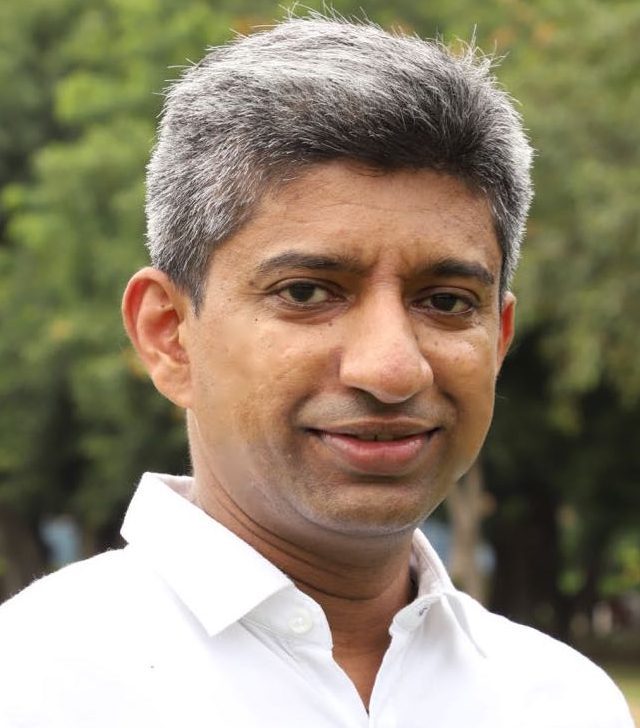 Jayan Jose Thomas is a Professor of Economics at the Indian Institute of Technology Delhi, where he has been employed since July 2010. His research deals with various issues related to development, mainly labour, industrialization and the macroeconomy. He teaches courses on macroeconomics, Indian economic development, international economics, and planning and development. Jayan’s previous academic positions were at the National University of Singapore, Indian Statistical Institute, Kolkata, Madras School of Economics, and Central University of Kerala. He had also been a Member of the State Planning Board, Government of Kerala (2016-2021). While India has been the primary focus of his research, Jayan has been maintaining a lively academic interest on China and East Asia as well. His research papers have appeared in journals including World Development, Development and Change, and Economic and Political Weekly.
Jayan Jose Thomas is a Professor of Economics at the Indian Institute of Technology Delhi, where he has been employed since July 2010. His research deals with various issues related to development, mainly labour, industrialization and the macroeconomy. He teaches courses on macroeconomics, Indian economic development, international economics, and planning and development. Jayan’s previous academic positions were at the National University of Singapore, Indian Statistical Institute, Kolkata, Madras School of Economics, and Central University of Kerala. He had also been a Member of the State Planning Board, Government of Kerala (2016-2021). While India has been the primary focus of his research, Jayan has been maintaining a lively academic interest on China and East Asia as well. His research papers have appeared in journals including World Development, Development and Change, and Economic and Political Weekly.
Jayati Ghosh
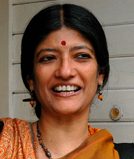 Jayati Ghosh taught economics at Jawaharlal Nehru University for nearly thirty-five years and is now Professor of Economics, University of Massachusetts, Amherst, USA. She has authored and edited (alone and in collaboration) 20 books and published more than 200 scholarly articles, in addition to writing frequently in the popular media. She has been Executive Secretary, IDEAs, and serves on a number of international commissions.
Jayati Ghosh taught economics at Jawaharlal Nehru University for nearly thirty-five years and is now Professor of Economics, University of Massachusetts, Amherst, USA. She has authored and edited (alone and in collaboration) 20 books and published more than 200 scholarly articles, in addition to writing frequently in the popular media. She has been Executive Secretary, IDEAs, and serves on a number of international commissions.
Jesim Pais
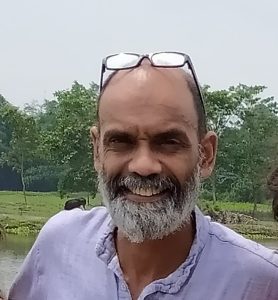 Jesim Pais is director of the Society for Social and Economic Research (SSER), an independent research institution based in Delhi, India. His main research interests have been in the area of informal sector and informal labour focusing on urban industrial centres in different parts of India. He has also worked on issues related to agrarian conditions and industrial development. He is also interested in training research scholars in methods of field-based research and quantitative analysis. Previously Jesim has worked at the Institute for Studies in Industrial Development, Delhi. and the Indian Statistical Institute, Kolkata. His PhD is from the Indira Gandhi Institute of Development Research (IGIDR), Mumbai. Jesim Pais has a graduate degree in Mechanical Engineering.
Jesim Pais is director of the Society for Social and Economic Research (SSER), an independent research institution based in Delhi, India. His main research interests have been in the area of informal sector and informal labour focusing on urban industrial centres in different parts of India. He has also worked on issues related to agrarian conditions and industrial development. He is also interested in training research scholars in methods of field-based research and quantitative analysis. Previously Jesim has worked at the Institute for Studies in Industrial Development, Delhi. and the Indian Statistical Institute, Kolkata. His PhD is from the Indira Gandhi Institute of Development Research (IGIDR), Mumbai. Jesim Pais has a graduate degree in Mechanical Engineering.
Jomo K S
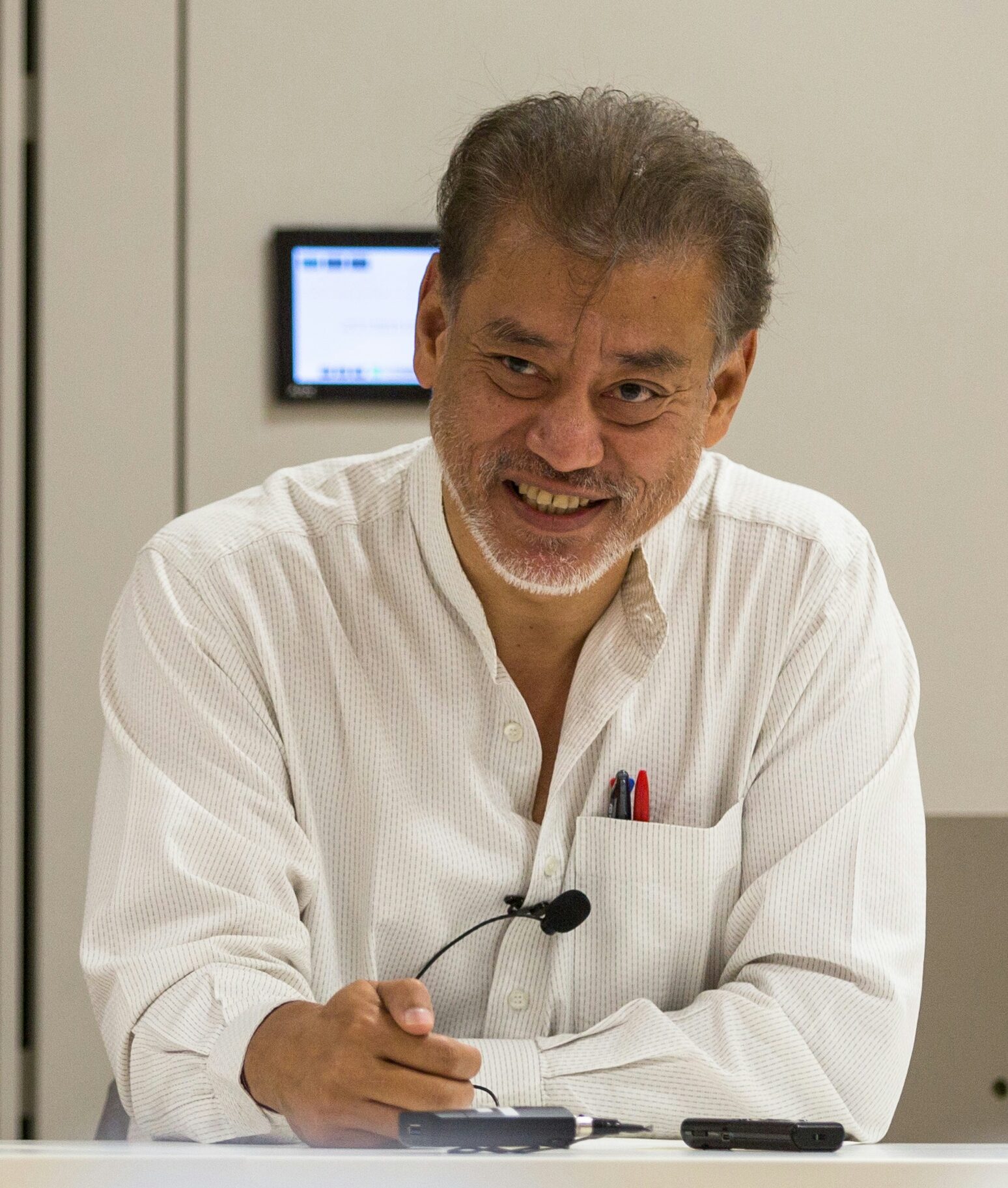 Jomo Kwame Sundaram is Senior Advisor at the Khazanah Research Institute, Fellow of the Academy of Science, Malaysia, and Emeritus Professor at the University of Malaya. He was the Founder-Chair of IDEAs. He was Assistant Director General and Coordinator for Economic and Social Development (ADG-ES), Food and Agriculture Organization of the United Nations from August 2012 until December 2015, Assistant Secretary General for Economic Development in the United Nations’ Department of Economic and Social Affairs (DESA) from January 2005 until June 2012, and (Honorary) Research Coordinator for the G24 Intergovernmental Group on International Monetary Affairs and Development from December 2006 until September 2012. In 2007, he was awarded the Wassily Leontief Prize for Advancing the Frontiers of Economic Thought. He has authored and edited over a hundred books and translated ten volumes besides writing many academic papers and articles for the media.
Jomo Kwame Sundaram is Senior Advisor at the Khazanah Research Institute, Fellow of the Academy of Science, Malaysia, and Emeritus Professor at the University of Malaya. He was the Founder-Chair of IDEAs. He was Assistant Director General and Coordinator for Economic and Social Development (ADG-ES), Food and Agriculture Organization of the United Nations from August 2012 until December 2015, Assistant Secretary General for Economic Development in the United Nations’ Department of Economic and Social Affairs (DESA) from January 2005 until June 2012, and (Honorary) Research Coordinator for the G24 Intergovernmental Group on International Monetary Affairs and Development from December 2006 until September 2012. In 2007, he was awarded the Wassily Leontief Prize for Advancing the Frontiers of Economic Thought. He has authored and edited over a hundred books and translated ten volumes besides writing many academic papers and articles for the media.
Ndongo Samba Sylla
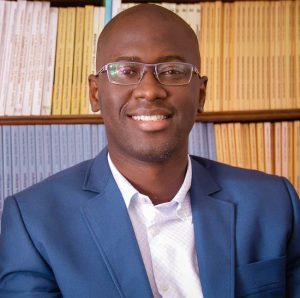 Ndongo Samba Sylla is a Senegalese development economist. He has previously worked as a technical advisor at the Presidency of the Republic of Senegal. He is currently a Senior Research and Program manager at the West Africa office of the Rosa Luxemburg Foundation (Dakar). His publications cover topics such as Fair trade, labor markets in developing countries, social movements, democratic theory, economic and monetary sovereignty. He authored The Fair Trade Scandal. Marketing Poverty to Benefit the Rich, Pluto Press & Ohio University Press, 2014. He coauthored Africa’s Last Colonial Currency. The CFA Franc Story, Pluto Press, 2021. He is a coeditor of Economic and Monetary Sovereignty for 21st century Africa (Pluto Press, 2021). He tweets at @nssylla
Ndongo Samba Sylla is a Senegalese development economist. He has previously worked as a technical advisor at the Presidency of the Republic of Senegal. He is currently a Senior Research and Program manager at the West Africa office of the Rosa Luxemburg Foundation (Dakar). His publications cover topics such as Fair trade, labor markets in developing countries, social movements, democratic theory, economic and monetary sovereignty. He authored The Fair Trade Scandal. Marketing Poverty to Benefit the Rich, Pluto Press & Ohio University Press, 2014. He coauthored Africa’s Last Colonial Currency. The CFA Franc Story, Pluto Press, 2021. He is a coeditor of Economic and Monetary Sovereignty for 21st century Africa (Pluto Press, 2021). He tweets at @nssylla
Pali Lehohla
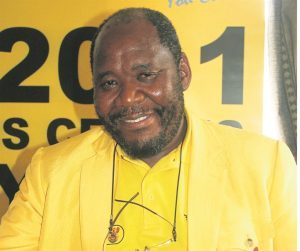 Pali Lehohla is the former Statistician-General of South Africa, a position he held from 2000 up to 2017. He was co-chair of PARIS21 and the Chair of the United Nations Statistics Commission. He was the founding chair of the Statistics Commission of Africa (StatCom Africa) and chaired the African Symposium for Statistical Development (ASSD). He was the Vice President of the International Statistics Institute (ISI). He served as one of the twenty-five-member panel on Data Revolution appointed by the UN Secretary General. Dr Lehohla has been a forceful advocate for improving the Civil Registration and Vital Statistics systems in Africa. He consulted extensively in the in conflict, out of conflict and fragile states on matters statistics. Since 2018 he became a Research Associate at Oxford University. For twenty years to date he has been a weekly columnist in the Business Report, over a month to-date he is a weekly columnist in the Sunday Times Daily Online. Dr Lehohla is the co-director of the Economic Modelling Academy (EMA) that aims to train society in economic policy formulation based on the principles and laws of motion of economics.
Pali Lehohla is the former Statistician-General of South Africa, a position he held from 2000 up to 2017. He was co-chair of PARIS21 and the Chair of the United Nations Statistics Commission. He was the founding chair of the Statistics Commission of Africa (StatCom Africa) and chaired the African Symposium for Statistical Development (ASSD). He was the Vice President of the International Statistics Institute (ISI). He served as one of the twenty-five-member panel on Data Revolution appointed by the UN Secretary General. Dr Lehohla has been a forceful advocate for improving the Civil Registration and Vital Statistics systems in Africa. He consulted extensively in the in conflict, out of conflict and fragile states on matters statistics. Since 2018 he became a Research Associate at Oxford University. For twenty years to date he has been a weekly columnist in the Business Report, over a month to-date he is a weekly columnist in the Sunday Times Daily Online. Dr Lehohla is the co-director of the Economic Modelling Academy (EMA) that aims to train society in economic policy formulation based on the principles and laws of motion of economics.
Paris Yeros
 Paris Yeros is Professor at the Federal University of ABC (UFABC, São Paulo, Brazil) and member of the faculties of Economic Sciences, Sciences & Humanities, and World Political Economy. He is coordinator of the post-graduate programme in World Political Economy and member of the editorial board of Agrarian South: Journal of Political Economy. His areas of research include land, labour, and agrarian relations, political economy of Africa and Latin America, and world development.
Paris Yeros is Professor at the Federal University of ABC (UFABC, São Paulo, Brazil) and member of the faculties of Economic Sciences, Sciences & Humanities, and World Political Economy. He is coordinator of the post-graduate programme in World Political Economy and member of the editorial board of Agrarian South: Journal of Political Economy. His areas of research include land, labour, and agrarian relations, political economy of Africa and Latin America, and world development.
Prabhat Patnaik
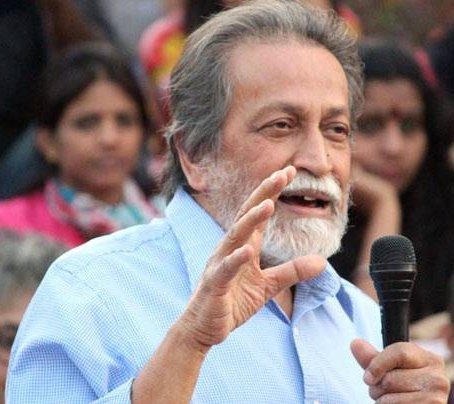 Prabhat Patnaik has taught at the University of Cambridge, UK, and at the Jawaharlal Nehru University, New Delhi, where he held the Sukhamoy Chakravarty Chair at the time of his retirement, and is currently Professor Emeritus. His books include Accumulation and Stability Under Capitalism (1997), The Value of Money (2009), Re-envisioning Socialism (2011) and A Theory of Imperialism (co-authored with Utsa Patnaik, 2016). His book (co-authored with Utsa Patnaik) Capital and Imperialism: Theory, History, and the Present (2021) is winner of the Paul A. Baran-Paul M. Sweezy Memorial Award. He is the editor of the journal Social Scientist.
Prabhat Patnaik has taught at the University of Cambridge, UK, and at the Jawaharlal Nehru University, New Delhi, where he held the Sukhamoy Chakravarty Chair at the time of his retirement, and is currently Professor Emeritus. His books include Accumulation and Stability Under Capitalism (1997), The Value of Money (2009), Re-envisioning Socialism (2011) and A Theory of Imperialism (co-authored with Utsa Patnaik, 2016). His book (co-authored with Utsa Patnaik) Capital and Imperialism: Theory, History, and the Present (2021) is winner of the Paul A. Baran-Paul M. Sweezy Memorial Award. He is the editor of the journal Social Scientist.
Praveen Jha
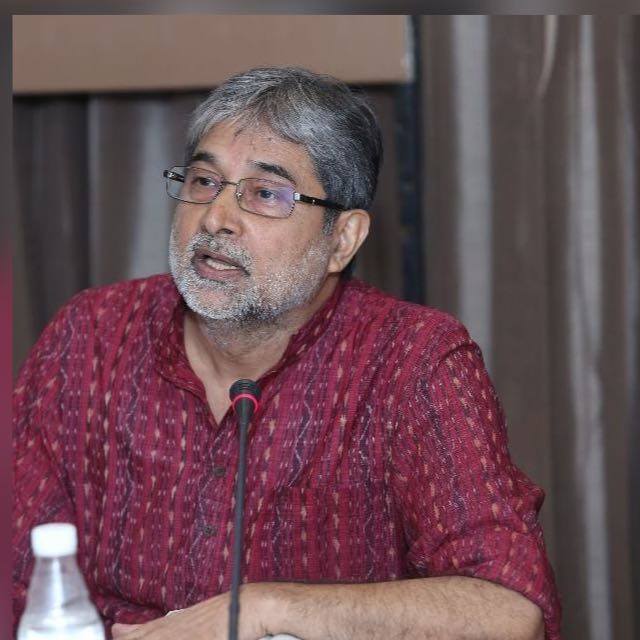 Praveen Jha is a Professor of Economics at the Centre for Economic Studies and Planning, and an Adjunct Professor at the Centre for Informal Sector and Labour Studies, Jawaharlal Nehru University, New Delhi, India. His main area of academic engagementis Political Economy of Development, with particular reference to Labour and Agriculture, especially in the global South. His other research and teaching interests include Education, Natural Resources, Public Finance and History of Economic Thought. He has published well over 100 journal articles, research papers and book chapters, in additiontoauthoring/editing more than twenty books and monographs. Prof. Jha is on the editorial/advisory boards of several well-known journals, such as the Agrarian South: Journal of Political Economy, Notebooks: Journal of Studies on Power, and Indian Journal of Labour Economics. He has also been a Visiting Professor at several institutions/Universities, including University of Bremen (Germany), University of Leipzig (Germany), and Kassel University(Germany); Tianjin University of Finance and Economics (China); Rhodes University(South Africa); Sam Moyo African Institute of Agrarian Studies(Zimbabwe) and the International Labour Organisation(Geneva).
Praveen Jha is a Professor of Economics at the Centre for Economic Studies and Planning, and an Adjunct Professor at the Centre for Informal Sector and Labour Studies, Jawaharlal Nehru University, New Delhi, India. His main area of academic engagementis Political Economy of Development, with particular reference to Labour and Agriculture, especially in the global South. His other research and teaching interests include Education, Natural Resources, Public Finance and History of Economic Thought. He has published well over 100 journal articles, research papers and book chapters, in additiontoauthoring/editing more than twenty books and monographs. Prof. Jha is on the editorial/advisory boards of several well-known journals, such as the Agrarian South: Journal of Political Economy, Notebooks: Journal of Studies on Power, and Indian Journal of Labour Economics. He has also been a Visiting Professor at several institutions/Universities, including University of Bremen (Germany), University of Leipzig (Germany), and Kassel University(Germany); Tianjin University of Finance and Economics (China); Rhodes University(South Africa); Sam Moyo African Institute of Agrarian Studies(Zimbabwe) and the International Labour Organisation(Geneva).
Rashed Al Mahmud Titumir
 Rashed Al Mahmud Titumir is a Professor of Economics at the Department of Development Studies of the University of Dhaka, Bangladesh. He is currently holding the charge of the Chairman of the Department. His latest books are: Fiscal and Monetary Policies in Developing Countries: State, Citizenship and Transformation (Routledge); State Building and Social Policies in Developing Countries: The Political Economy of Development (Routledge); Numbers and Narratives in Bangladesh’s Economic Development (Palgrave Macmillan); COVID-19 and Bangladesh: Response, Rights & Resilience (University Press Ltd); Sundarbans and its Ecosystem Services Traditional Knowledge, Customary Sustainable Use and Community Based Innovation (Palgrave Macmillan), and Natural Resource Degradation and Human-Nature Wellbeing: Cases of Biodiversity Resources, Water Resources, and Climate Change (Springer).
Rashed Al Mahmud Titumir is a Professor of Economics at the Department of Development Studies of the University of Dhaka, Bangladesh. He is currently holding the charge of the Chairman of the Department. His latest books are: Fiscal and Monetary Policies in Developing Countries: State, Citizenship and Transformation (Routledge); State Building and Social Policies in Developing Countries: The Political Economy of Development (Routledge); Numbers and Narratives in Bangladesh’s Economic Development (Palgrave Macmillan); COVID-19 and Bangladesh: Response, Rights & Resilience (University Press Ltd); Sundarbans and its Ecosystem Services Traditional Knowledge, Customary Sustainable Use and Community Based Innovation (Palgrave Macmillan), and Natural Resource Degradation and Human-Nature Wellbeing: Cases of Biodiversity Resources, Water Resources, and Climate Change (Springer).
Rohit
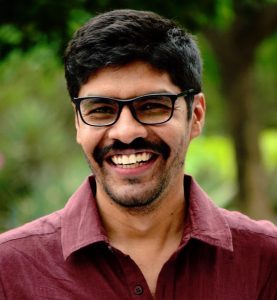 Rohit Azad teaches at Centre for Economic Studies and Planning, Jawaharlal Nehru University, Delhi. He is the author of It’s Not Over: Structural Drivers of the Global Economic Crisis, OUP (2013) and has co-edited A Quantum Leap in the Wrong Direction, Orient BlackSwan (2019). His areas of interest are climate change, macroeconomics, growth and development, political economy, monetary theory and policy. He has twice been a Fulbright scholar at University of Massachusetts, Amherst and the New School of Social Research, New York respectively.
Rohit Azad teaches at Centre for Economic Studies and Planning, Jawaharlal Nehru University, Delhi. He is the author of It’s Not Over: Structural Drivers of the Global Economic Crisis, OUP (2013) and has co-edited A Quantum Leap in the Wrong Direction, Orient BlackSwan (2019). His areas of interest are climate change, macroeconomics, growth and development, political economy, monetary theory and policy. He has twice been a Fulbright scholar at University of Massachusetts, Amherst and the New School of Social Research, New York respectively.
S Subramanian
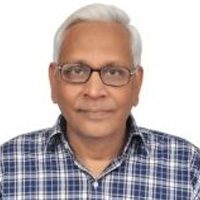
S. Subramanian is a former Indian Council of Social Science Research (ICSSR) National Fellow and a former professor of the Madras Institute of Development Studies. He is an elected Fellow of the Human Development and Capability Association (HDCA). His research has been on measurement and other aspects of poverty, inequality, and demography, and on topics in collective choice theory, welfare economics, and development economics. His work has appeared in, among other publications, Journal of Development EconomicsEconomics and Philosophy, Social Choice and Welfare, Theory and Decision, Mathematical Social Sciences, and Sankhya. He is the author of The Poverty Line (Oxford India Short Introductions series, 2012), among other books. He has been the recipient (along with his co-author) of the 2001 Dudley Seers Memorial Prize awarded to the best article published in the Journal of Development Studies. He was a member (2015-16) of the World Bank-appointed Commission on Global Poverty under the Chairmanship of the late Sir Tony Atkinson. He lives and works in Chennai.
Satyaki Roy
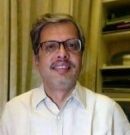 Satyaki Roy is Associate Professor at the Institute for Studies in Industrial Development, New Delhi. He worked on labour and employment issues. His recent work includes political economy of industrialisation in India, political economy of informality and value capture through global production network and financialisation under neoliberalism.
Satyaki Roy is Associate Professor at the Institute for Studies in Industrial Development, New Delhi. He worked on labour and employment issues. His recent work includes political economy of industrialisation in India, political economy of informality and value capture through global production network and financialisation under neoliberalism.
Sunanda Sen
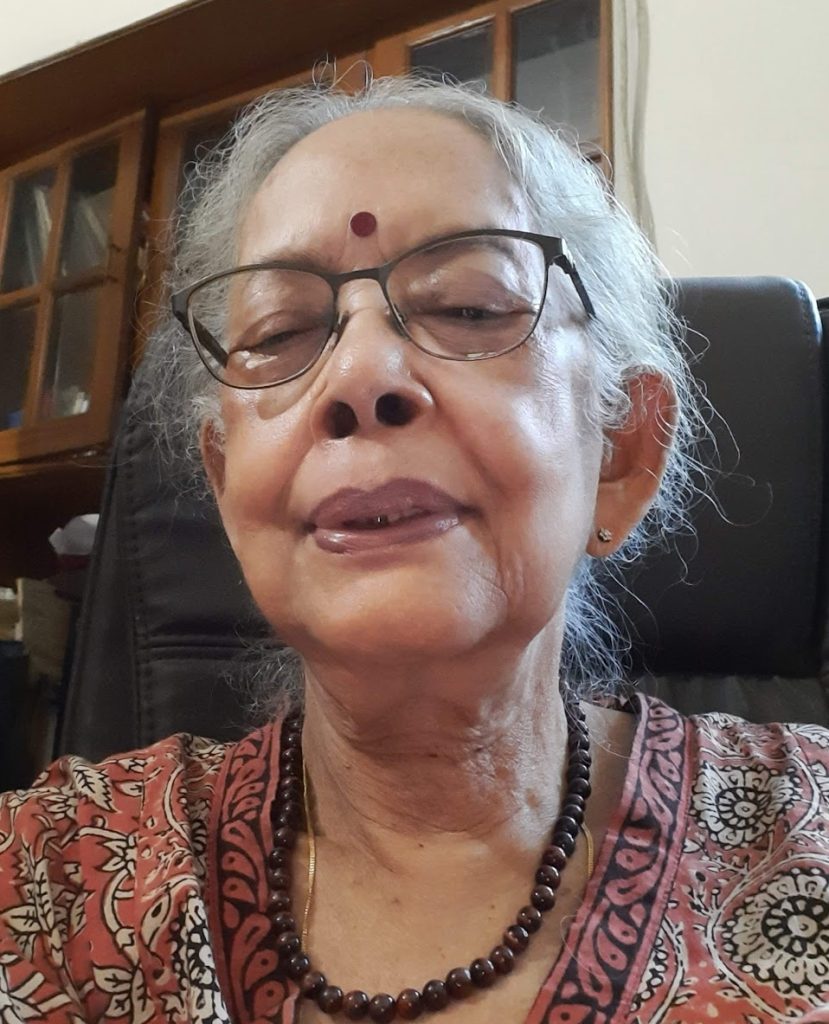 Sunanda Sen is an economist, currently researching on international finance, development and economic history. She has earlier taught in Jawaharlal Nehru University at New Delhi and also at Universities of Jadavpur and Delhi in India and at Universitat de Roma 1 Sapienza, University of Bologna, Universities of Barcelona, Grenoble, Surinam, and Paris. She is also a Research Associate at Levy Economics Institute, New York . She has been a fellow at several colleges of Cambridge University, a post-doctoral fellow at Yale University, and the recipient of the Joan Robinson Memorial Lectureship at Cambridge.She was awarded the Routledge-JSPE prize from Japan in 2022 on her last two published books. She has also worked with international organizations, including UNCTAD, ILO, ESCAP, South Commission. Sunanda Sen was elected a National Fellow of the Indian Council of Social Sciences. She is a Life member of Clare Hall, Cambridge and Research Associate of Levy Economics Institute, USA.
Sunanda Sen is an economist, currently researching on international finance, development and economic history. She has earlier taught in Jawaharlal Nehru University at New Delhi and also at Universities of Jadavpur and Delhi in India and at Universitat de Roma 1 Sapienza, University of Bologna, Universities of Barcelona, Grenoble, Surinam, and Paris. She is also a Research Associate at Levy Economics Institute, New York . She has been a fellow at several colleges of Cambridge University, a post-doctoral fellow at Yale University, and the recipient of the Joan Robinson Memorial Lectureship at Cambridge.She was awarded the Routledge-JSPE prize from Japan in 2022 on her last two published books. She has also worked with international organizations, including UNCTAD, ILO, ESCAP, South Commission. Sunanda Sen was elected a National Fellow of the Indian Council of Social Sciences. She is a Life member of Clare Hall, Cambridge and Research Associate of Levy Economics Institute, USA.
Sunanda Sen’s publications include papers in reputed journals as well as in edited volumes. She has published several books, including Colonies and Empire: India 1890-1914 (1992); Finance and Development (1998); Trade and Dependence: The Indian Experiences.(2000); Global Finance at Risk: On Instability and Stagnation in World Economy ( 2003); Globalization and Development (2007) [Translations in Japanese, 2012]; Un-freedom and Waged Work: Labour in India’s Organized Manufacturing Industry 2009, and .Development on Trial: Shrinking Space for the Periphery (2013). Dominant Finance and Stagnant Economies (2014) and The Changing Face of Imperialism (2018).
Surajit Das
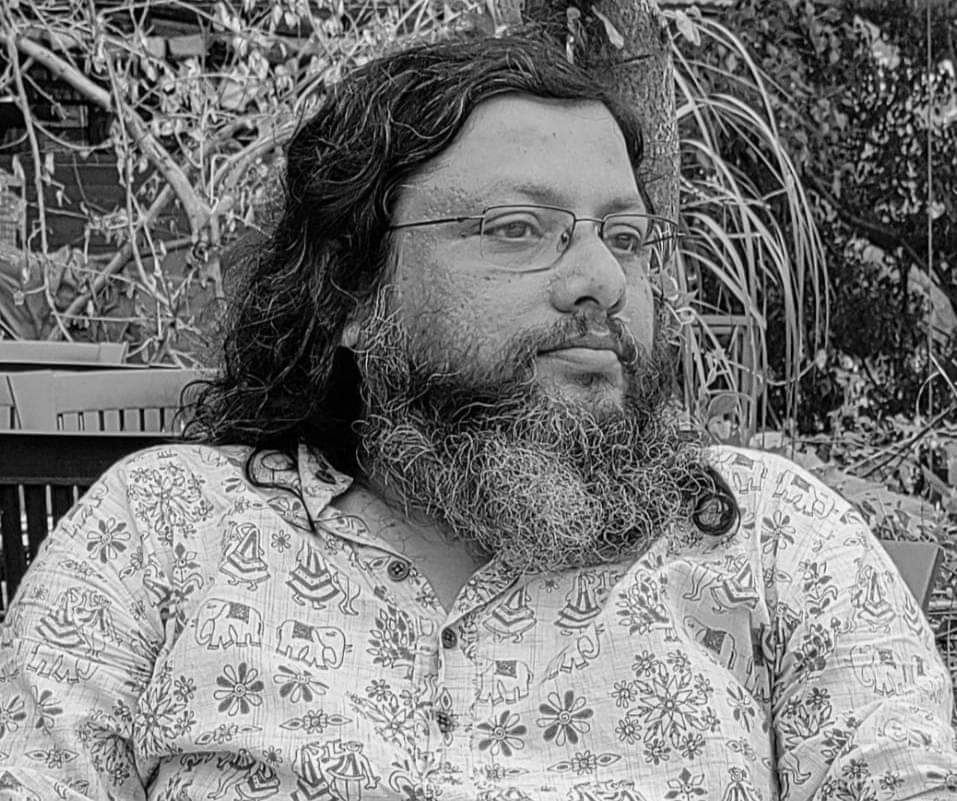 Surajit Das is an Assistant Professor at the Centre for Economic Studies & Planning, Jawaharlal Nehru University, New Delhi. IHe worked for the 12th Finance Commission, Planning Commission of India, State Planning Board of Kerala, National Institute of Public Finance and Policy and Ambedkar University, Delhi before joining JNU. His areas of interest include macroeconomic policy, applied econometrics and human development.
Surajit Das is an Assistant Professor at the Centre for Economic Studies & Planning, Jawaharlal Nehru University, New Delhi. IHe worked for the 12th Finance Commission, Planning Commission of India, State Planning Board of Kerala, National Institute of Public Finance and Policy and Ambedkar University, Delhi before joining JNU. His areas of interest include macroeconomic policy, applied econometrics and human development.
Surajit Mazumdar
 Surajit Mazumdar is Professor of Economics at the Centre for Economic Studies and Planning (CESP), Jawaharlal Nehru University. During a 28-year career, he has also been on the faculty at Ambedkar University Delhi (AUD), Institute for Studies in Industrial Development (ISID), New Delhi and Hindu College, University of Delhi. His research has focused on the Indian corporate sector, Indian industrialization and the impact of globalization on the Indian economy.
Surajit Mazumdar is Professor of Economics at the Centre for Economic Studies and Planning (CESP), Jawaharlal Nehru University. During a 28-year career, he has also been on the faculty at Ambedkar University Delhi (AUD), Institute for Studies in Industrial Development (ISID), New Delhi and Hindu College, University of Delhi. His research has focused on the Indian corporate sector, Indian industrialization and the impact of globalization on the Indian economy.
Vikas Rawal
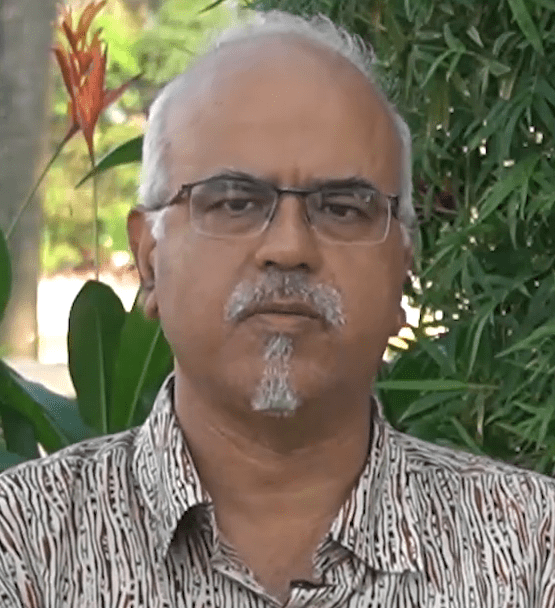 Vikas Rawal is Professor of Economics at Jawaharlal Nehru University. His research has mainly focused on agrarian issues, food security and employment. He has conducted field-based research in many states of India. He has also worked on global issues related to agriculture and food. He was the lead author of The Global Economy of Pulses published in 2019 by the Food and Agriculture Organization of the United Nations (FAO). He recently co-edited (with Jayati Ghosh and C P Chandrasekhar) an IDEAs volume titled When Governments Fail (Tulika, 2021).
Vikas Rawal is Professor of Economics at Jawaharlal Nehru University. His research has mainly focused on agrarian issues, food security and employment. He has conducted field-based research in many states of India. He has also worked on global issues related to agriculture and food. He was the lead author of The Global Economy of Pulses published in 2019 by the Food and Agriculture Organization of the United Nations (FAO). He recently co-edited (with Jayati Ghosh and C P Chandrasekhar) an IDEAs volume titled When Governments Fail (Tulika, 2021).
